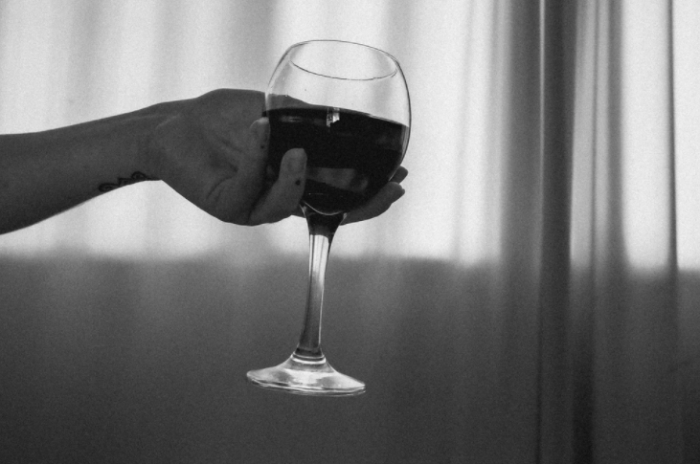The first lockdown last March was a completely new world.
Suddenly, my husband was home all the time; my kids were in what could barely be described as virtual learning as it was new and messy. It was cold and gloomy outside, and I was scared and depressed.
There was no routine, no such thing as a weekend, and my husband and I were drinking a lot. I was used to enjoying wine on the weekends; however, when every day felt the same—as though we were living in the movie “Groundhog Day,” which I never liked to begin with—we got into the habit of having our weekend drinks every night.
This went on for about two weeks. During this time, I was getting more anxious, depressed, and worried, and then one morning in late March, I woke up and decided I never wanted to drink again—and I haven’t since.
Today, I am 287 days sober. I use the word sober reluctantly because even though it’s being used literally, I still associate it with alcoholics, and I don’t feel I have the right to it. I know that sounds silly, but frankly, I did not need to put in the work an alcoholic does in order to quit. It isn’t even close to as easy as waking up and making a decision and then following through—at least not for most alcoholics. So for that, I feel slightly guilty using the word and that is also why I do not feel as though my sobriety number requires any praise.
It was, however, still a habit I had to break, and it did not come easily at first.
I craved it; I wanted to feel the warm fuzzy buzz I got when the kids went to bed, which ever so slightly curved my anxiety—but that curve was short-term.
I have spoken openly about quitting drinking, and why I am against the Mommy wine culture we are surrounded with on social media and in marketing. Promoting overconsumption as something we all need to survive parenthood. I have an entire post dedicated to the topic if you are interested.
Here is the irony: I believe I survived the last lockdown because I quit.
I am here to list the benefits I reaped from doing so.
My depression and anxiety during quarantine instantly improved by a landslide. Not a shocker, as alcohol is a depressant and an anxiety stimulant.
I didn’t plan to, but I lost weight in my midsection. So if that is something you can’t seem to do and are not feeling physically healthy, limiting the empty calories of a glass or two—or three—will make a dramatic change in your unused, stored body fat.
I slept much sounder. We all know that alcohol makes us pass out much quicker when we hit the pillow, but are you aware of the havoc it wreaks on the quality of your slumber? If you find you are waking a ton when you drink, that’s the alcohol.
I was more at peace; I was calmer; I was happier; I was more energetic; I was fully present.
These things stayed with me. The benefits are lifelong and only get better, so I kept going.
Life sort of felt normal again by summertime, but I could not think of one single benefit to starting up drinking again, even just on the weekends. So, I carried on.
Here I am, 287 days later, and back in lockdown. It’s cold, it’s gloomy, and things outside are looking even more dire with the soaring COVID cases. It would be easy to crave that warm fuzzy feeling before bed, to numb myself a little; however, I know that it comes with way too many side effects that are not worth it to me.
If you feel like you need a reset in your mental and physical health, quitting or cutting back on alcohol will vastly improve those things.
I get it, some are reading this like, it’s a freaking pandemic, I need my wine, and that’s fine, no judgement from me—a once total wino—but if you can relate to how I was feeling, give it a try.
You have absolutely nothing to lose (except maybe a few pesky pounds) and so much to gain.
Simply,
Jules
~



Read 17 comments and reply